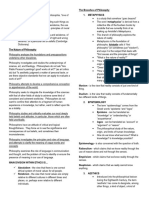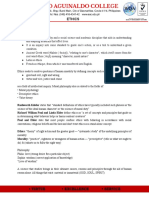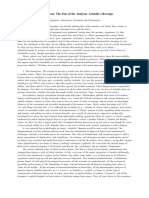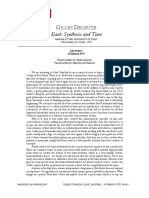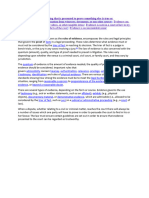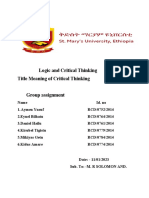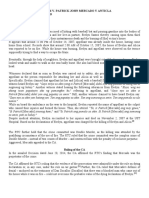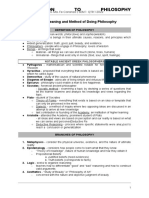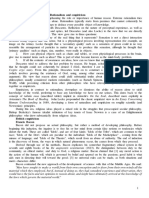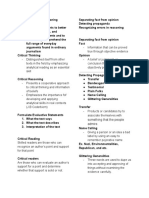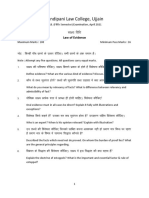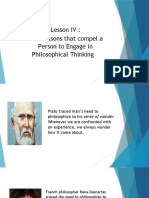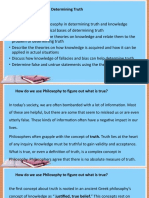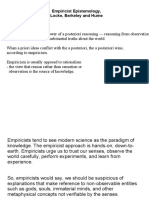0% found this document useful (0 votes)
85 views18 pagesPhilosophy Report
Philosophy involves searching for general understanding of values and reality through speculative rather than observational means. It has four main areas: ethics, which examines how we should act; metaphysics, which considers what exists; epistemology, which studies the nature of knowledge; and logic, which analyzes reasoning. Aesthetics is also a branch of philosophy concerned with beauty, art, and taste.
Uploaded by
Romz QuintosCopyright
© © All Rights Reserved
We take content rights seriously. If you suspect this is your content, claim it here.
Available Formats
Download as PPTX, PDF, TXT or read online on Scribd
0% found this document useful (0 votes)
85 views18 pagesPhilosophy Report
Philosophy involves searching for general understanding of values and reality through speculative rather than observational means. It has four main areas: ethics, which examines how we should act; metaphysics, which considers what exists; epistemology, which studies the nature of knowledge; and logic, which analyzes reasoning. Aesthetics is also a branch of philosophy concerned with beauty, art, and taste.
Uploaded by
Romz QuintosCopyright
© © All Rights Reserved
We take content rights seriously. If you suspect this is your content, claim it here.
Available Formats
Download as PPTX, PDF, TXT or read online on Scribd
/ 18

